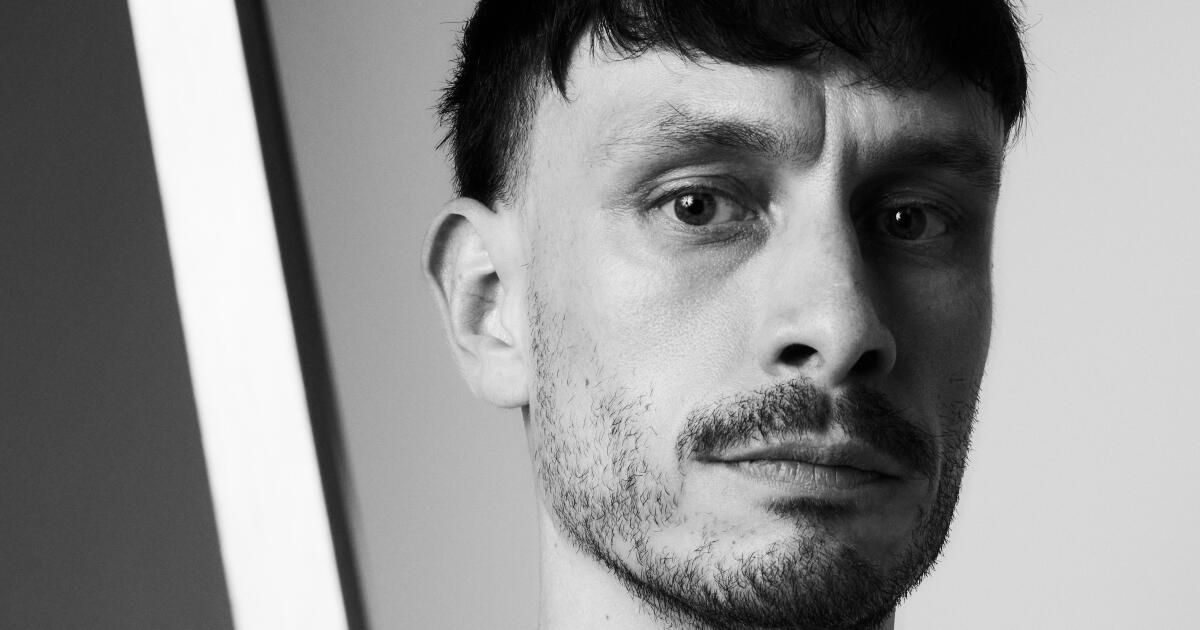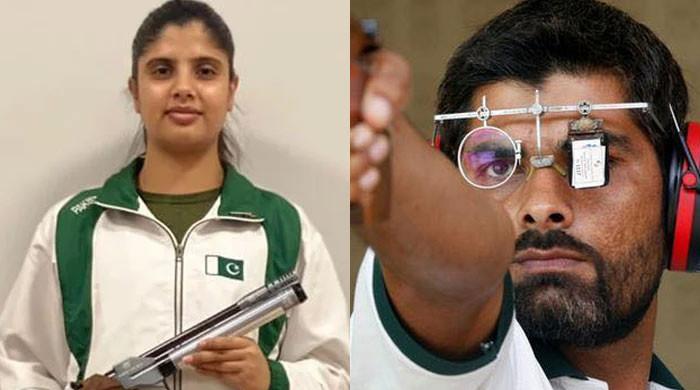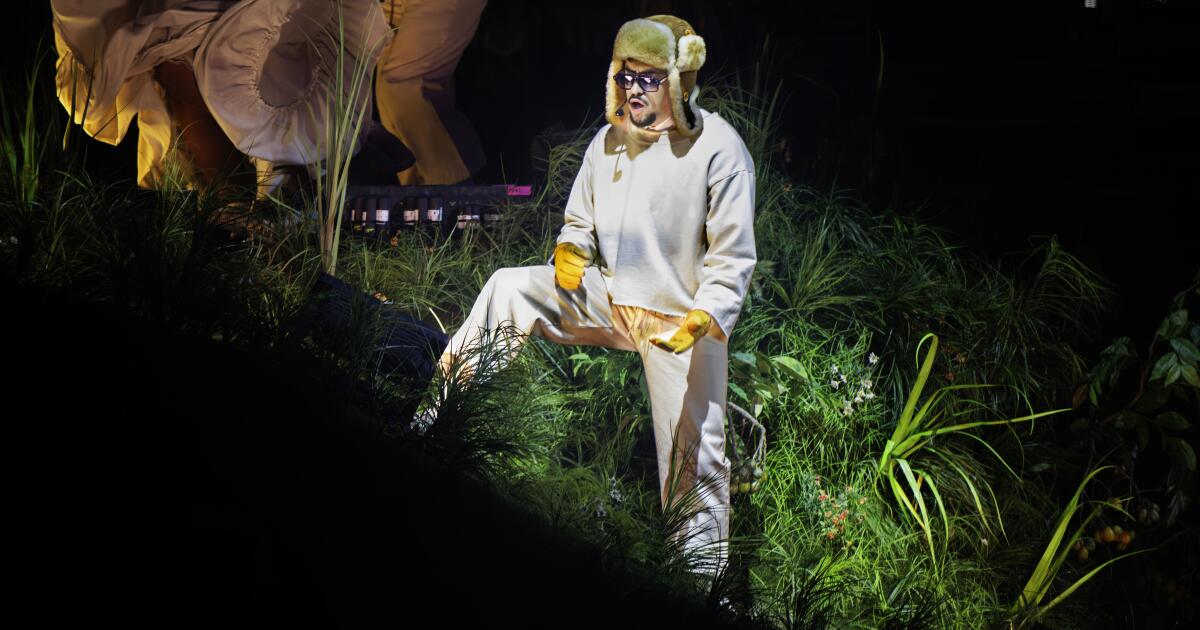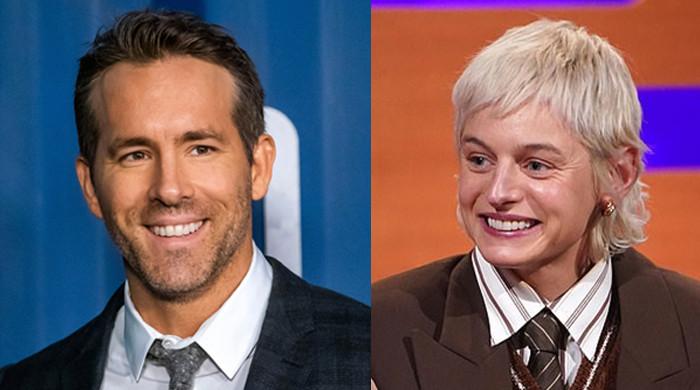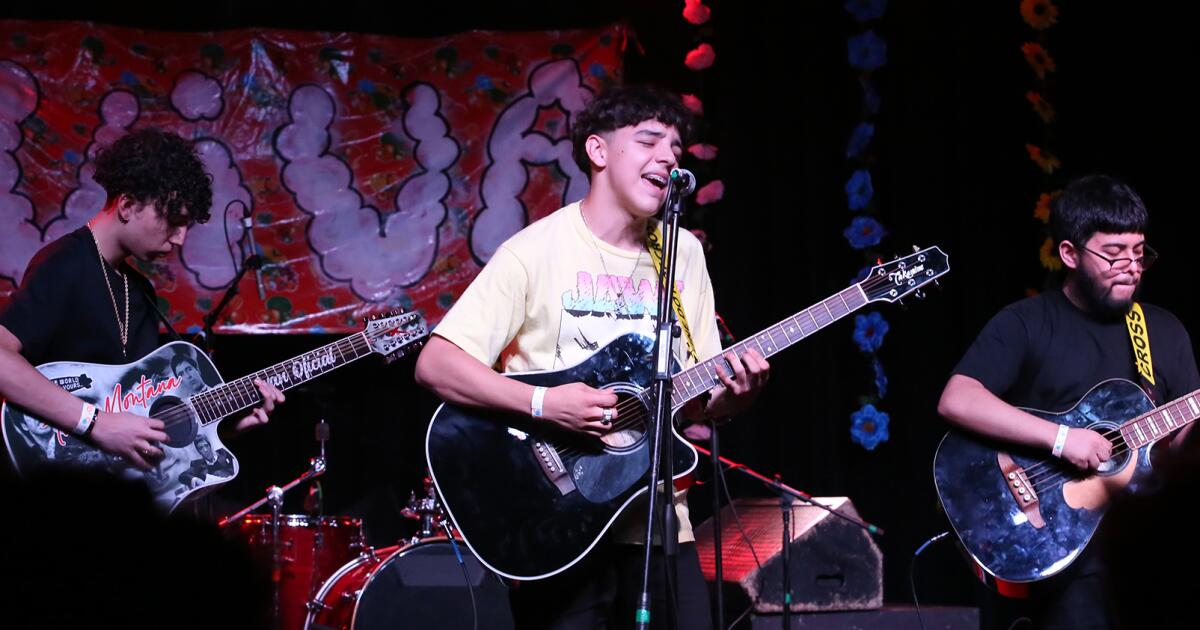“If I wanted real-life people to be found, I would have made a documentary,” Richard Gadd says of those who are concerned about the identity of their stalker. “They are my real-life experiences and I chose to show them in a fictional world based on truth.”
(Shayan Asgharnia / For The Times)
A couple of Saturdays after “Baby Reindeer” premiered on Netflix, its star and creator, Richard Gadd, learned he was the most Googled man on planet Earth. Or maybe he was at the top of all searches on Wikipedia. Or maybe both.
There’s a lot to understand. What does it mean? Obviously, people want to know something about you: who you are, what you’ve done, whether you’re in a relationship, that sort of thing. That kind of massive, collective curiosity can be flattering. Me? You want to know more about me? Or, if you, like Gadd, have created a TV show based on your real-life experience dealing with a stalker and how your own traumatic past influenced that experience, you might be a little freaked out.
In practice, having Netflix’s most-watched show for a couple of months in a row means that when you go from your London flat to the pub for drinks with friends before the Pogues’ gig at the Hackney Empire, you literally can’t move because people have mobbed you. Then, when Gadd went to the gig, partly a tribute to the band’s late frontman Shane MacGowan, the same thing happened.
“But I met the Pogues and it was great,” Gadd tells me. “They'd all seen the show, which I couldn't believe because I'd idolised them all my life. [Accordion player] James Fearnley said it was his second time, which is crazy.”
These days, when it comes to his extraordinary newfound fame, Gadd is learning to accept the good with the bad. Sitting in a Netflix conference room with Jessica Gunning, who plays Martha, the woman who terrorizes Gadd’s alter ego, comedian Donny Dunn, Gadd relaxes when the conversation turns to the creation of the seven-part miniseries. But there’s also an undercurrent of tension, owing to the fact that Piers Morgan, as we have this conversation, is interviewing the woman who claims to be the real-life Martha (she has since sued Netflix for defamation).
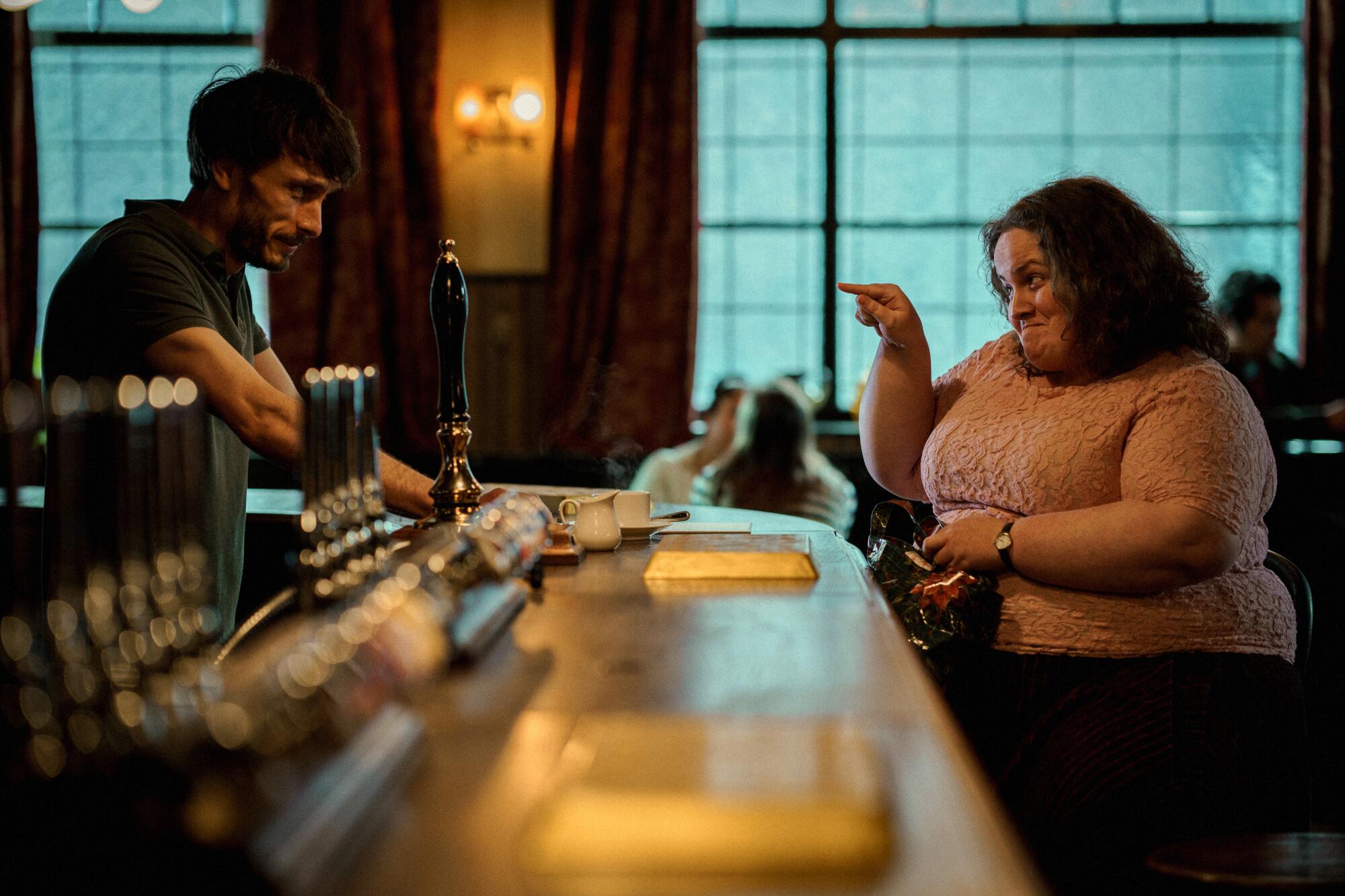
Richard Gadd stars alongside Jessica Gunning in “Baby Reindeer.”
(Ed Miller / Netflix)
“Unfortunately, I can’t comment on that,” Gadd says, looking at one of the two Netflix publicists present for the conversation. “Every character on the show — five, six, seven people — has been accused of being them. I can’t police the Internet. I can certainly go on record as saying that I will never confirm or deny who they are.”
“If I wanted real people to be found, I would have made a documentary. These are my real-life experiences and I chose to show them in a fictional world based on truth. All I felt I needed to show the world was the basis of that emotional truth.”
That emotional truth is nothing short of astonishing, the main reason why so many viewers, like that Pogues band member, have streamed “Baby Reindeer” more than once in recent months.
Gadd's character, Donny, is a down-and-out; his dreams of becoming a stand-up comedian have stalled and he ekes out a living as a waiter. Regrets? More than a few.
When Martha, a middle-aged woman on the verge of tears, sits down at the bar, Donny asks if he can get her anything. A cup of tea? She protests. She can’t afford it. “How about I buy you a cup of tea on the house?” Martha perks up. She’s grateful. And then she won’t leave him alone.
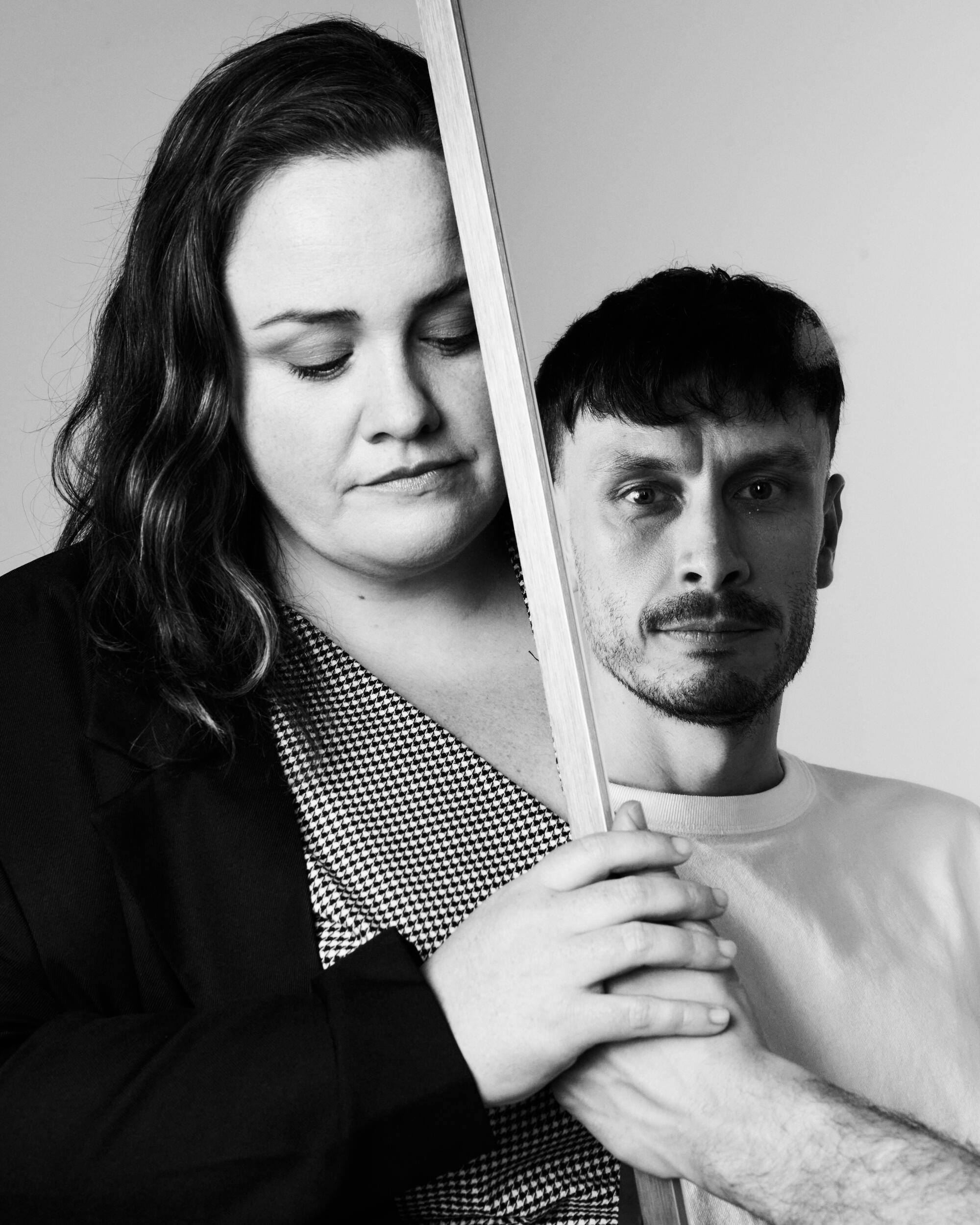
Jessica Gunning's unique perspective on one scene helped her land the role of a stalker in “Baby Reindeer.”
(Shayan Asgharnia / For The Times)
What begins as a horror story grows deeper and more complex as Donny’s behavior becomes increasingly erratic, fueled by a self-loathing and neediness rooted in shame. The first episode begins with Donny walking into the police station to report Martha. An officer asks him: How long has this been going on? Six months. Why did it take you so long to report it? The answer, we learn in episode 4, is devastating.
Gunning’s empathetic portrayal of Martha is vital to the show’s success. Gadd had seen her on stage and on television and thought she had an energy she associated with Martha, “desperate to get out.” She was one of 30 women who auditioned and read two scenes in the first episode with Gadd. Donny and Martha's “date” at the cafe that spirals out of control and the moment outside the comedy club when Martha tells Donny that she wishes humans had a zipper on their chin that opened all the way to their bellies. “I'd just open it and hide,” she says.
Gunning recalls repeating lines from the final scene to a friend before the audition and telling her it was one of her favorites from the show.
“I said, ‘That’s the sweetest, almost romantic scene,’ and then my friend read it and said, ‘That’s terrifying,’” Gunning says. “And it was really the first time I saw it in a different way. I was like, ‘Is that scary? ’ I thought that was a real compliment because she found safety in the idea of being bundled up inside it during the winter.”
That perspective explains why she won the role.
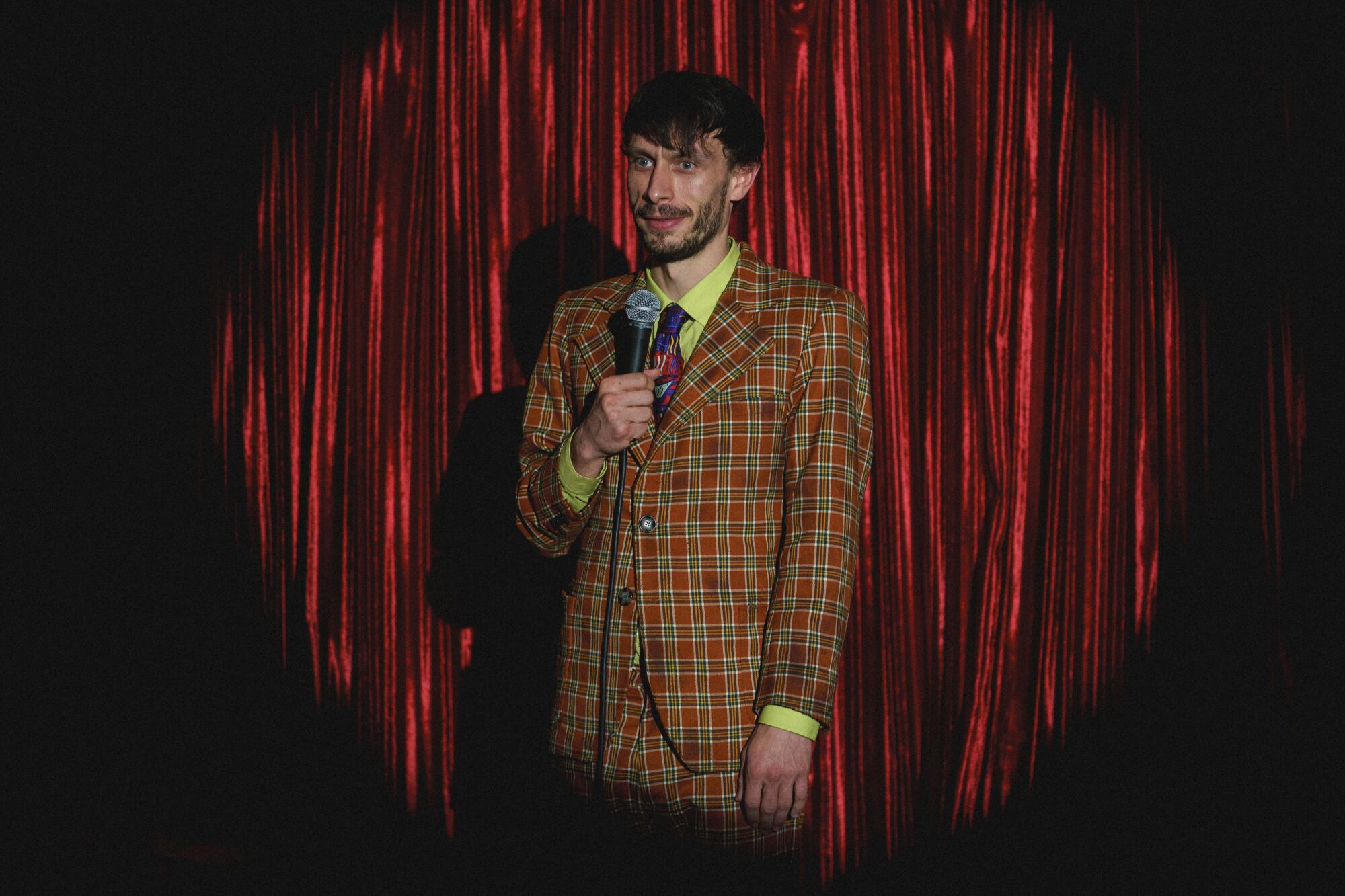
Richard Gadd plays struggling comedian Donny Dunn in “Baby Reindeer.”
(Ed Miller)
“I was looking for someone who didn’t prioritize the villainous traits, where the ‘craziness’ was a little bit in the background and the vulnerability was there,” says Gadd. “A lot of people didn’t seem to understand that. Only Jess seemed to understand it.”
“Baby Reindeer” began as a solo play in 2019, with a barstool standing in for Martha. Three years earlier, Gadd’s show “Monkey See, Monkey Do,” which focused on her attempts to process the fear and shame of her own sexual assault, had premiered at the Edinburgh Festival Fringe. Both plays were successful on a small scale, with Gadd thinking the miniseries would simply be a “weird show that’s quite niche in a way” and occupy a small corner on the Netflix streaming platform. Instead, she spent those first few weeks after its premiere dealing with “a big change.”
“I feel like I’m being dragged along by the wind,” Gadd says. “Like, ‘Wow, this is crazy.’”
In “Baby Reindeer,” Gadd’s character achieves a measure of fame, but then finds it empty and unfulfilling. Has this sudden notoriety left you feeling the same way?
“Ask me in six months,” she replies, quickly adding, “I’m just joking. That’s a joke.” Gadd goes on to talk about all the letters she’s received through her agent from people who say the show has encouraged them to break their silence about the trauma of their past. She mentions that a Manchester-based male sexual abuse charity, We Are Survivors, reported an 80% increase in calls since “Baby Reindeer” premiered, with more than half of them citing the series as the reason for reaching out.
“I can't consider it an empty experience when things like this happen,” Gadd says.
He’s also pleased that viewers are debating (and largely appreciating) the show’s ambiguous ending, which mirrors the moment Donny gives Martha the cup of tea. Only now, it’s Donny sitting at a bar, distraught, and it’s the bartender who takes pity on him and offers him a drink on the house. Donny looks up with an expression that can be read in many ways. Maybe he’s remembering that first moment with Martha. Maybe he now has a deeper understanding of Martha. Or maybe, like Martha, this act of kindness prompts him to notice the good Samaritan who offers it to him.
“I know what it means to me, but I don’t think I’d say it publicly,” Gadd says of the ending. “I think ‘Baby Reindeer’ has a lot to say, but I don’t think he’s using a megaphone while he’s saying it. He’s not screaming his morality/message at the audience’s ears. I like that it’s open to interpretation. I like that there are characters that people don’t like and then you ask the next person and they say they really like those characters.”
“I like that,” he adds, “because that’s life, in a way. It’s all subjective.”
A couple of months later, Gadd and I reconnect via Zoom, partly because I wonder if he can go to a pub these days without being bothered. He says there has been a “little dip, a slight reduction” in his public profile, but he still won’t venture into a Wetherspoons again anytime soon, though he considers the chain’s “1.5kg fry-up” a “rite of passage”.
Sitting in the living room of his London flat, the walls a shrine to the Pogues, adorned with rare posters and albums, along with signed Laurel and Hardy memorabilia, Gadd appears much more relaxed.
“I don’t even want to think about what it was like last time,” he says, laughing.
He’s focused on writing his next project, titled for now “Lions” (“That’s just a placeholder,” he says), which follows two men, close enough to be considered brothers, across four decades from the 1980s to the present day. When it was announced that HBO was co-producing the six-part BBC One show, a press release touted that the series “will attempt to get to the bottom of the difficult question… What does it mean to be a man?”
That sounds pretty ambitious, I tell Gadd.
“We’ll see what happens,” he says, laughing. “I’m really looking forward to doing a piece about masculinity and exploring it in a way that hasn’t been done before and trying to delve a little bit deeper into the difficulties surrounding men, the difficulties around emotions and feelings. Just an exploration of the positive and negative aspects of what it means to be a man.”
He's taking on the challenge of writing something that isn't based on his own life, as his last few projects have been. As much as I appreciate his enthusiasm, it's hard not to get distracted by what's around him. Gadd In fact He likes the Pogues. And that’s not all, he says. He turns around, grabs something, and starts telling me a story about how he once wrote MacGowan a long letter, explaining how he rediscovered the band’s music while recovering from the trauma of sexual abuse, and how the lyrics he’d heard all his life took on this “incredible meaning” and became a way of coping.
A year later, a package arrived in the mail. It was a Pogues CD/DVD collection, signed by MacGowan. The inscription read: “Love Shane.”
“Even today, if there was a fire in my house, that would be the first thing I would grab,” Gadd says.

